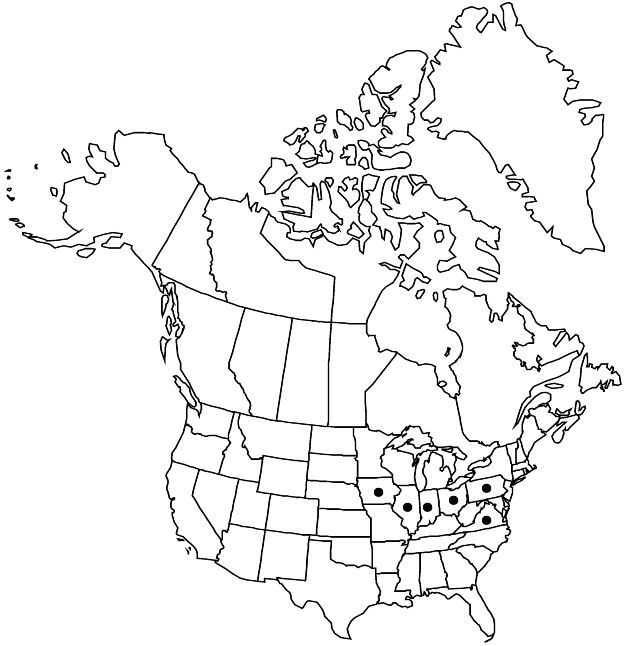Crataegus ×disperma
J. Elisha Mitchell Sci. Soc. 17: 14. 1900. as species
Shrubs or trees, 50–80 dm. Stems: twigs: new growth reddish young, glabrous or pubescent, 1-year old shiny brown, glabrous, older dark gray; thorns on twigs 2-years old shiny, dark brown, fine, 3–4 cm. Leaves deciduous; petiole 0.7–1.5 cm, winged nearly to base, glabrous; blade dark green, obovate or elliptic, 2.5–5 cm, subcoriaceous, base broadly to narrowly cuneate, lobes 0 or few, sinuses very shallow, margins serrate, venation craspedodromous, veins 5–7 per side, apex acute, surfaces glabrous. Inflorescences 5–12-flowered; branches glabrous; bracteoles caducous, linear, membranous, margins glandular. Flowers 13–18 mm diam.; hypanthium glabrous; sepals narrow, margins ± entire or subserrate; stamens 10, anthers pink or red-purple; styles 2(or 3). Pomes deep red, ± oblong, 12–14 × 9–11 mm; sepals spreading, subsessile; pyrenes 2, dorsally grooved, sides plane.
Phenology: Flowering May; fruiting Sep–Oct.
Habitat: Brush, along streams
Elevation: 50–200 m
Distribution

Ill., Ind., Iowa, Ohio, Pa., Va.
Discussion
Crataegus ×disperma has been found sporadically from Iowa east to Virginia and Pennsylvania, where the ranges of C. punctata and C. crus-galli overlap.
Crataegus ×disperma belongs to a group of taxa intermediate between C. crus-galli and C. punctata; it may key to C. collina, although it has glossier leaves and usually fewer styles and pyrenes. Some specimens are more hairy, or with more strongly glandular-serrate sepal margins, than in the description, which is based on Ashe. Crataegus danielsii E. J. Palmer from Missouri, with glossy, more or less coriaceous, but lobed leaves is another problematic C. crus-galli × C. collina hybrid according to Palmer (1952). The pink-anthered C. ×disperma and cream-anthered C. ×incaedua are similar to C. collina var. sordida except for the number of styles and pyrenes (two or three).
Selected References
None.